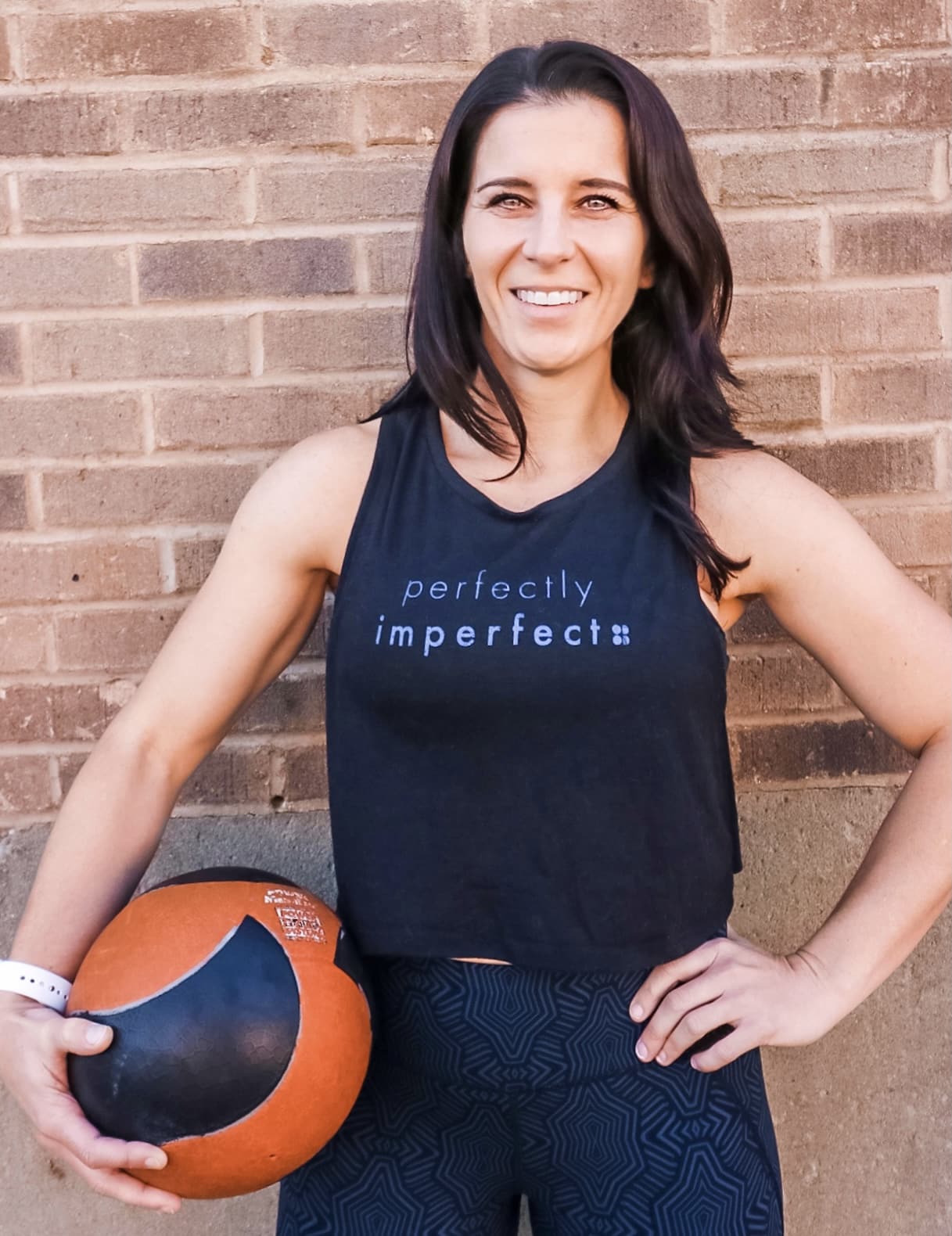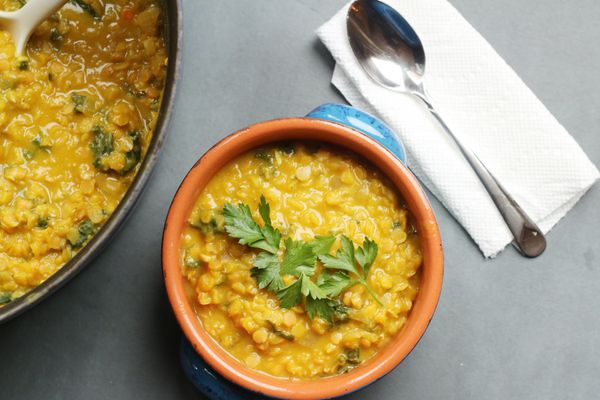I want you to know that we had another round of coronavirus disease in my house. I want you to know that my daughter, I, and my mother-in-law all caught it this April, and were incapacitated for weeks on end. I also want you to know that my mother-in-law, who lived a full life at 76 years young, ultimately passed away from COVID-19-related complications.
This has been a difficult time for us all. She is someone who was instrumental in changing the trajectory of so many lives with her generosity, her kindness, her thoughtfulness and compassion; a Haitian woman who brought her infant son to America, a woman who welcomed that son’s fiancée into her home until they got on their feet as a couple and family, a woman who was easily one of the most recognizable faces in her neighborhood. What does it look like to remember such a titanic woman?
In listening to the way they all remember her, they always talk about how she fed them. She always came with a Tupperware, or a Country Crock container or a jelly jar of something she’d made. She came with bags of pre-marinated meat, and would cook it at your home, bring it to you on your plate.
Years ago, yeeeeeeears ago, I had a commenter here who talked about how she struggled with the idea of abandoning the cultural staples that bound her to the people who made her the woman she is today. She asked, “But if one of the few ties that bind I have is food…how can I bear to loosen yet another line to those I love?”
Over the years, I’ve realized is that food is culture. I mean, don’t get me wrong. Culture is music, style and language, but it is also food.
Just like music conveys a particular kind of energy and message and spirit within its community, and just like language communicates thoughts and experiences, so does food. What story is being told when someone hands you a bowl of Soup Joumou? What story are you taught when you stand alongside the family matriarch as you watch her clean The Greens?
Over the years, I’ve learned a lot about food as an expression of cultural identity, and how different cultures translate the same ingredients a thousand different ways. Culture is generational—it links us to those who came before us, it shows us how we’ve evolved as a community, and it gives us a connection to our shared history. This is what my ancestors thought, this is what they hoped for, this is what sustained them. The meaningfulness of this, however, is erased whenever we’re talking about Black culture.
The premise is that our culture—because it is not the culture of a particular kind of wealth and inconspicuous consumption, because its core components are not heralded by white supremacy—is expendable. It should be abandoned for something better. And it is always made abundantly clear that “something better” actually means “something whiter.”
I hear so much of this in the discussions surrounding who is currently succumbing to the coronavirus disease (also known as COVID-19) right now. That Black people in America are 2.4 times more likely to die, if infected with the disease, because they have high cholesterol and blood pressure or because they’re obese; that Black people in America are obese because of “the food they eat.” They’re fat because their food makes them fat. They’re addicted to excess. They can’t control themselves, even if it would mean saving their own lives.
Because our health, as a community, is seen as a problem that we have caused with our own behaviors and decision making, it is treated as a justification of why this is not America’s concern. This is not America’s problem. That’s their problem. Never mind the fact that Black America’s 49.6% obesity rate is scantly different from the white rate of 42.2%–just above a 6% difference. It’s an opportunity to denigrate Black culture, to justify why it should be eliminated. It’s a chance to step on Black people once more.
If there are disparities in the numbers between Black and white Americans, perhaps it is not about the moral failings of Black society—perhaps it is a reflection of a society where the overwhelming majority of the hospitals, grocery stores, and walkable spaces are centralized in predominantly white communities. Perhaps it is time to talk about the high number of Black Americans who work in jobs so physically taxing that they don’t offer the luxury of time to commit to physical activity, and no benefits to help them pay for the care they need for that blood pressure or cholesterol. Perhaps it is time to talk about not just food deserts, but food swamps—environments where the only available food resources are fast food restaurants.
Because of this, food becomes political. Food is about identity. Asking—no, demanding—that someone give up their food, their culture, is about asking people to abandon that identity. Claiming that they must do this in order to survive—both literally and figuratively—is not just racist, but it is also a lie. People who eat the Standard American Diet are still developing diabetes and heart disease, still struggling with high cholesterol, regardless of race.
Politics is about shaping the world we live in, and how the government serves the people it represents. If the understanding is that our cultural foods are bad and must be abandoned (news flash: it’s not), then what results is divestment: not enough hospitals in our community, no grocery store to service us, no investment in clean and walkable spaces. There’s no reason to invest in saving a community whose culture “undermines their own wellbeing.”
But, in so many ways, that culture fulfills us and helps us feel seen. My unyielding loyalty to collard greens is just as much a commitment to my own health as it is a commitment to the 4 generations of women who played in the backyard garden where our greens grew. My mother-in-law, who would notice how I’d spend hours at my desk working without moving, let alone eating, would bring me a giant bowl of beans and rice and a cup of ginger tea. She’d make pikliz and keep a jar in the side of the fridge for me when she realized I was making my own pickles. And every New Year, while I’d be making my Hoppin’ John, she’d be making Soup Joumou.
If the question is still, “But if one of the few ties that bind I have is food…how can I bear to loosen yet another line to those I love?” In my mind, the answer is clear: you can’t.
Food is a fundamental part of the 5 love languages that we all know so well. To have someone teach you a recipe is an act of service; to bring you a plate is a gift; to have an elder take your hand and guide it over a collard green leaf to ensure you know how to check if it’s clean is physical touch. To sit and eat together is quality time. The culture always included these forms of love. It only became wrong for food to represent love when we were referring to Black people.
Do we all need to find different ways to show love? Of course. That doesn’t erase the potency of this way. It doesn’t erase the value to the culture.
Food is not “just food,” but we never needed it to be. In a society where everyone is experiencing an increase in diabetes, heart disease, and cholesterol, it’s far more likely that the “problem” has more to do with the processed foods we’re all eating, and less to do with the cultural staples so many of us cooked from scratch for generations. I maintain that no one is eating Soul Food seven days a week—the meals people are eating each day are far more likely to be fast food, prepackaged processed food, TV dinners, canned sauces, and other items loaded with sugar, salt, and starch. Our foodways are more than that.
Recipes passed down from elders and fed to babies are more than roots in a rich family tree still bearing fruit, they’re connection to the people who loved us and showed it by nourishing us. That’s more than food—that’s Soul Food.
My mother-in-law didn’t speak much English, but she understood how to show love in a language we all knew in a way we’ll never forget. That’s the most important reason why food cannot simply be food—the food can speak when nothing else can. To abandon that sacred ritual, because of white supremacy, would betray more than those who came before us—we’d be betraying ourselves.

